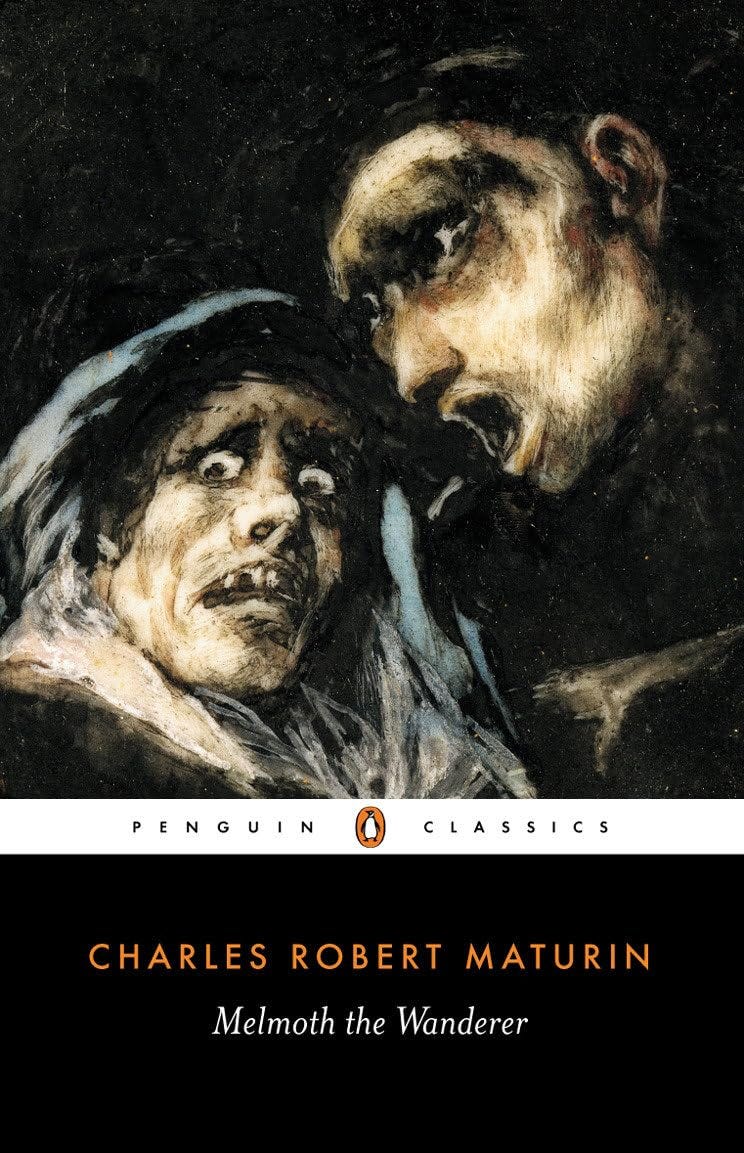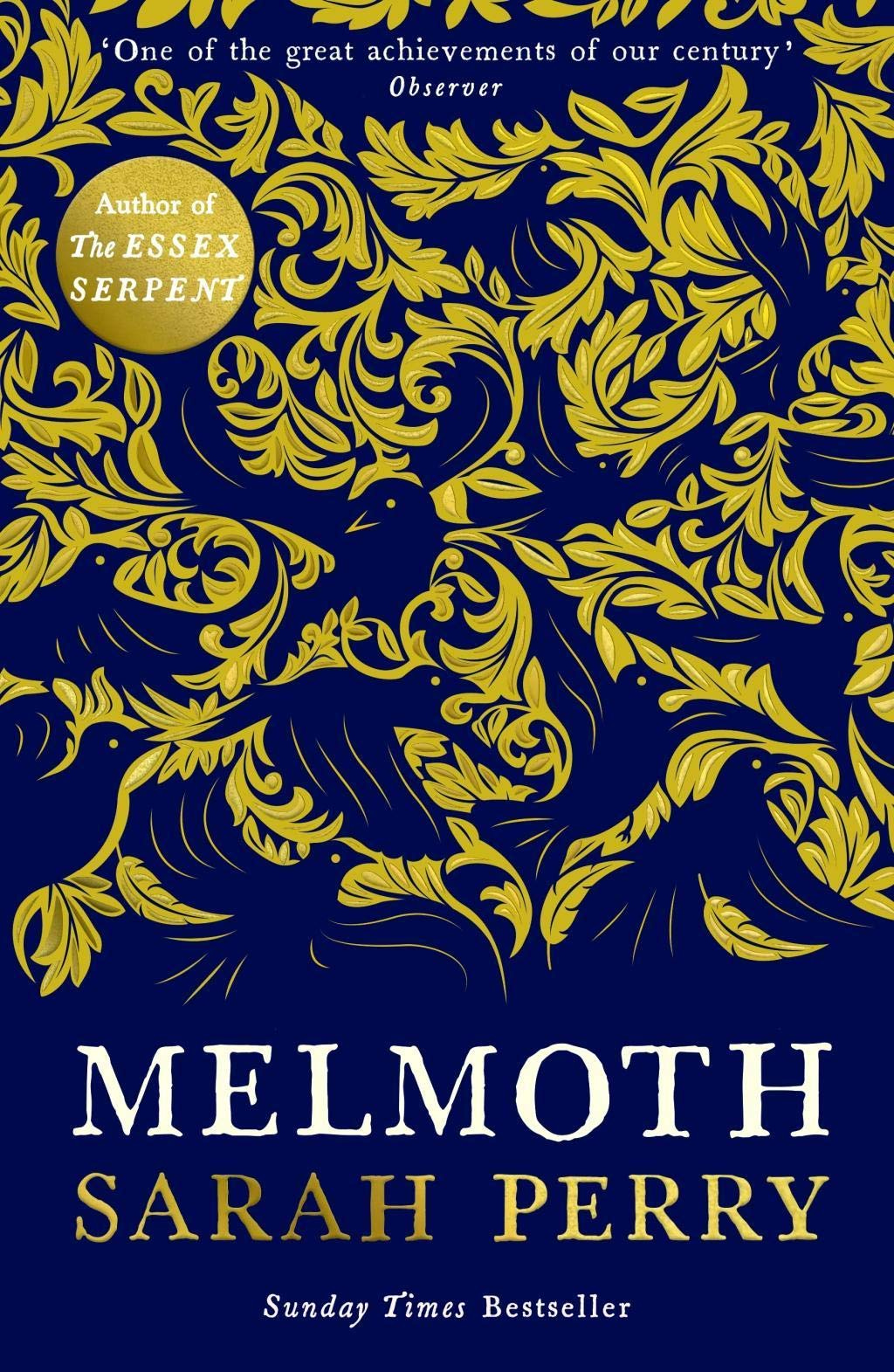Melmoth the Wanderer
by Charles Maturin
The Irish writer Charles Maturin died two hundred years ago on Wednesday. An appropriate way to mark the day might be to read his terrifying Gothic novel, Melmoth the Wanderer, about a character who attempts to evade death.
Maturin was an Irish curate who wrote Gothic novels that sold poorly, until his play Bertram, or The Castle of St Aldobrand caught the attention of Sir Walter Scott. With Scott’s and Lord Byron’s help, Bertram was staged in 1816 at the Theatre Royal Drury Lane and was briefly extremely popular. Unimpressed by the play’s ungodly narrative, however, the Church of Ireland blocked Maturin’s future clerical career and when subsequent plays proved less successful, his literary star began to wane. He was neglected towards the end of his life and he died in poverty at the age of forty-four. His great-nephew, born thirty years later, was Oscar Wilde. Today Maturin is best remembered for his horrifying novel Melmoth the Wanderer (1820).

In a satanic bargain, the cursed Melmoth sold his soul in exchange for 150 years of extra life. Now he wanders the earth, seeking out the tortured and the helpless, offering to ease their sufferings if they will only take over his satanic pact. The strange narrative is revealed through increasingly nested stories within stories that feature Jewish scholars locked inside rooms decorated with human skulls, marriages conducted by undead hermits, London lunatic asylums and the Spanish Inquisition. Influenced by the Gothic extremes of Matthew Lewis and Ann Radcliffe, Maturin’s novel is even more extravagant and macabre.
The novel is referenced in Alexander Pushkin’s Eugene Onegin, Anthony Trollope’s The Way We Live Now, Vladimir Nabokov’s Lolita and the ‘Murder by Magic’ episode of Midsomer Murders.
Alternatively, you could read Melmoth (2018) by Sarah Perry, author of The Essex Serpent (2016).
Melmoth features a female version of Maturin’s character: Melmotka, a tall, silent woman in black. A sheaf of old manuscripts on the streets of Prague transports the novel’s central character, Helen Franklin, to seventeenth-century England, wartime Czechoslovakia, the tropical streets of Manila and 1920s Turkey.
The Observer review of Melmoth said that ‘Perry’s masterly piece of postmodern gothic is one of the great literary achievements of our young century, and deserves all the prizes and praise that will be heaped upon it.’
On a completely separate note, I had a fun conversation recently with Rihanna Dhillon for the Penguin Podcast. Listen to Episode 3 of the new series for our chat about the classics: Alice’s Adventures in Wonderland, Jane Austen, The Count of Monte Cristo, Virginia Woolf and much more.
Buy a copy of Melmoth the Wanderer or Melmoth through Bookshop.org and Read the Classics will earn a commission from your purchase. Thank you in advance for your support!







Melmoth sounds right up my alley - I'll be taking a look at Sarah Perry's story, too. Thank you!
I enjoyed Sarah Perry's version, have not read the original. And of course I love Trollope's Melmotte, what a wonderful villain! https://harkness.substack.com/p/melmotte-merdle-and-bulstrode-victorian?r=gqpmg